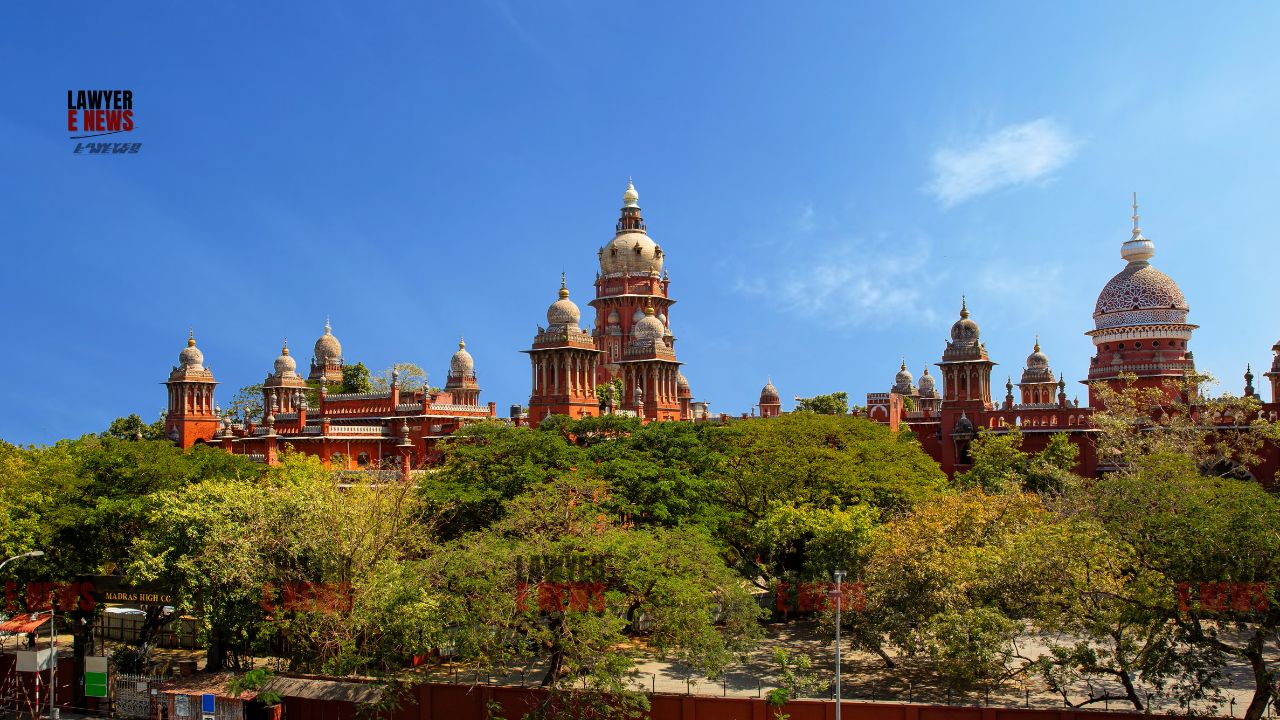-
by Admin
15 February 2026 5:35 AM



Madras High Court delivered a ruling in Manoharan vs. The State, dismissing two criminal revision petitions filed by the petitioner, Manoharan. The petitions sought to set aside the Trial Court's order denying his discharge in a case involving charges of conspiracy, forgery, and cheating. The Court upheld the Trial Court's decision, finding prima facie evidence against the petitioner under Sections 120(B), 465, 468, 471, 472, 420 r/w 34 of the Indian Penal Code (IPC).
The case arose from a complaint lodged by Mr. M. Chandrasekaran, Regional Officer of the All India Council of Technical Education (AICTE), against M/s. Muthukumaran Educational Trust and its associates for submitting forged documents to obtain recognition for starting a polytechnic college. The petitioner, Manoharan (A6), was an employee and Manager of the Trust. It was alleged that the Trust submitted forged building and planning permission documents as if approved by the Chennai Metropolitan Development Authority (CMDA). Following an anonymous complaint and an investigation by AICTE, it was found that the documents were forged. The petitioner, along with other accused, was charged with conspiracy and forgery.
Manoharan filed a discharge petition under Section 239 of the Criminal Procedure Code (Cr.P.C.), arguing that he was merely an employee who submitted documents on behalf of the Trust and had no knowledge of their forged nature. Additionally, he questioned the validity of the counter affidavit filed by the Investigating Officer, which was not signed by the Assistant Public Prosecutor. The petitioner contended that the Trial Court improperly dismissed the discharge petition without considering these arguments.
The High Court examined whether the absence of a forensic examination in a forgery case invalidates the prosecution’s case and whether the petitioner could be discharged based on the lack of direct evidence of his involvement in the alleged conspiracy.
The Court rejected the petitioner's argument regarding the counter affidavit filed by the Holding Investigating Officer, stating that the Assistant Public Prosecutor acknowledged and filed it before the Presiding Officer. The Court noted that this did not affect the Trial Court's decision, which was based on the records and materials in the charge sheet.
The Court emphasized that in conspiracy charges, direct evidence may not always be apparent and can often be inferred from the overall circumstances during the trial. It pointed out that the petitioner, as the Manager of the Trust, played a pivotal role in submitting the forged documents to the AICTE and coordinating with various officials for approvals. The Court observed that the petitioner actively participated in submitting documents that were later found to be forged by the CMDA.
Addressing the issue of forensic examination, the Court stated that it is not a rule that all forgery cases must be sent for forensic analysis. The Court has the authority under Section 73 of the Indian Evidence Act to compare and study signatures and writings. In this case, the Court found sufficient prima facie evidence to proceed to trial without requiring a forensic examination.
The Madras High Court upheld the Trial Court's decision to dismiss Manoharan's discharge petition, finding no illegality or infirmity in the order. The Court concluded that a prima facie case was established against the petitioner based on the investigation and evidence presented, warranting a full-fledged trial. Consequently, both the criminal revision cases were dismissed.
Date of Decision: September 3, 2024
Manoharan vs. The State
